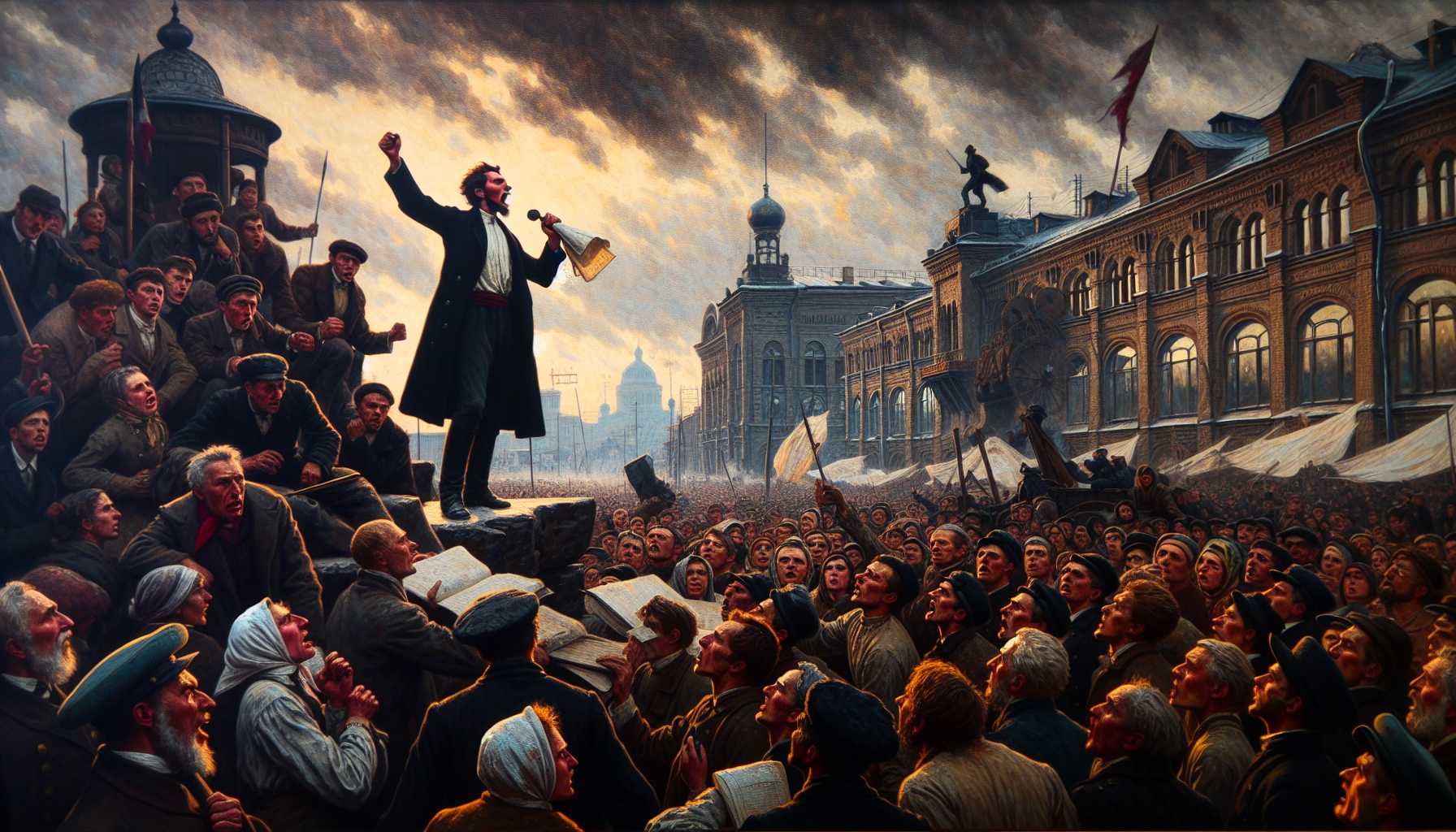
Vladimir Lenin Impact on 20th Century History and Communism
Vladimir Lenin was a pivotal figure in 20th-century history, best known for being the leader of the Bolshevik Party and the architect of the Soviet Union.
Vladimir Lenin foi uma figura fundamental na história do século XX, mais conhecido por ser o líder do Partido Bolchevique e o arquiteto da União Soviética.
Born in 1870 in Russia, he became involved in revolutionary politics in the early 1900s, advocating for Marxist principles and the overthrow of the Tsarist autocracy.
Nascido em 1870 na Rússia, ele se envolveu na política revolucionária no início dos anos 1900, defendendo princípios marxistas e a derrubada da autocracia tsarista.
Lenin's revolutionary fervor led to the 1917 October Revolution, which resulted in the Bolsheviks seizing power and establishing a communist government.
O fervor revolucionário de Lenin levou à Revolução de Outubro de 1917, que resultou na tomada de poder pelos bolcheviques e na criação de um governo comunista.
Lenin implemented significant reforms and policies aimed at restructuring Russian society and economy.
Lenin implementou reformas e políticas significativas com o objetivo de reestruturar a sociedade e a economia russas.
His leadership during the Russian Civil War (1917-1922) solidified his power but also resulted in widespread violence and hardship.
Sua liderança durante a Guerra Civil Russa (1917-1922) solidificou seu poder, mas também resultou em ampla violência e dificuldade.
He introduced the New Economic Policy (NEP) in 1921, allowing limited private enterprise to stimulate the economy after the devastation of the civil war, while still maintaining state control over major industries.
Ele introduziu a Nova Política Econômica (NEP) em 1921, permitindo um empreendedorismo privado limitado para estimular a economia após a devastação da guerra civil, enquanto ainda mantinha o controle do estado sobre as principais indústrias.
After his death in 1924, Lenin's legacy continued to influence global politics, with the Soviet Union emerging as a superpower.
Após sua morte em 1924, o legado de Lenin continuou a influenciar a política global, com a União Soviética emergindo como uma superpotência.
His theories and practices laid the groundwork for future communist movements around the world, although his approach was often subject to criticism for its authoritarian tendencies.
Suas teorias e práticas estabeleceram as bases para futuros movimentos comunistas ao redor do mundo, embora sua abordagem fosse muitas vezes alvo de críticas por suas tendências autoritárias.
Lenin remains a controversial figure, symbolizing both revolutionary change and the complexities of totalitarian regimes.
Lenin continua a ser uma figura controversa, simbolizando tanto a mudança revolucionária quanto as complexidades dos regimes totalitários.
Based on this article
